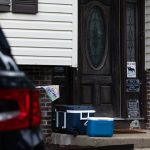Last week, President Trump introduced the Special Education Simplified Funding Program as part of his 2026 budget proposal. The president’s budget isn’t binding, but it suggests that the way the administration proposes to allocate funds to the states could have an impact on the education of students with disabilities, both in classroom instruction and enforcement of minimum standards.
For almost 50 years, parents of students with disabilities have relied on federal oversight to ensure that their children receive a fair education. But under the proposed budget, money earmarked for the Individuals with Disabilities Education Act (IDEA) comes with a promise to limit the federal government’s role in education and provide states with greater flexibility, which could mean drastically reducing oversight of how states will use that money.
To me and many other parents of the 7.5 million public school students in the country served by IDEA, Mr. Trump’s efforts to eliminate the Department of Education and potentially just give IDEA funding directly to the states is our worst nightmare.
Last spring, a group of parents in Oklahoma filed a complaint with the State Department of Education against the Bixby School District, stating that the district had placed their children in segregated classrooms, and that it did not try instead to use supplementary aides and support services, thereby violating the law under IDEA. When students with disabilities are educated primarily in such segregated classrooms, they are often denied the full breadth of learning opportunities and interactions. Most significantly, they learn they do not belong among their peers.
Nick and Kristen Whitmer chose to live in Bixby, a suburb of Tulsa, because of the school district’s reputation for inclusive special education. This was what they wanted for their daughter, Adaline, who is 8 years old and has Down syndrome. But her experience last fall hadn’t been what they hoped. Adaline spent less than half of her time at school in a general education classroom. She started her day there with a morning meeting with the other children. But after 10 minutes, a teacher guided her down the hall to the special education room. She rejoined other first graders for recess and lunch, but spent little time in an academic classroom with nondisabled peers. It was hard for Adaline to make friends with classmates. “Adaline is not viewed as a member of the community,” Ms. Whitmer told me. “She is a guest.”
In preschool, Adaline had been placed in the Oklahoma Alternative Assessment Program, which is reserved for “students with the most significant cognitive disabilities.” That meant that Bixby district administrators determined Adaline would not be given the opportunity to earn a high school diploma. Ms. Whitmer said that she pleaded with district representatives to put her daughter on the diploma track, but that they initially refused and began bringing a lawyer to meetings.











